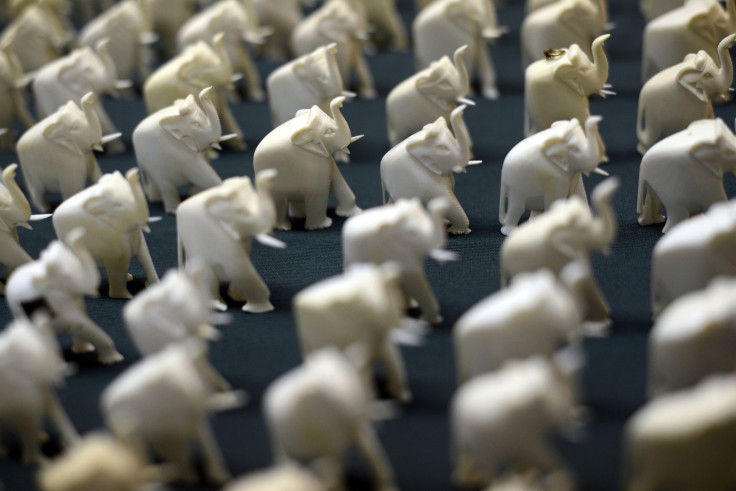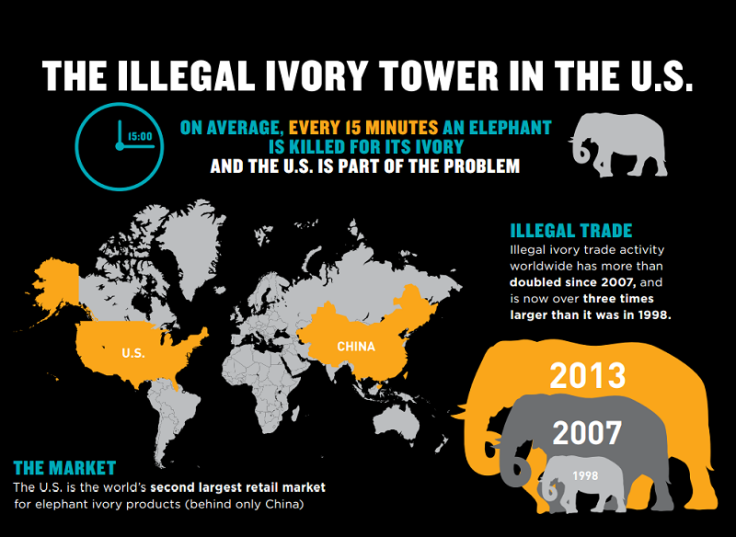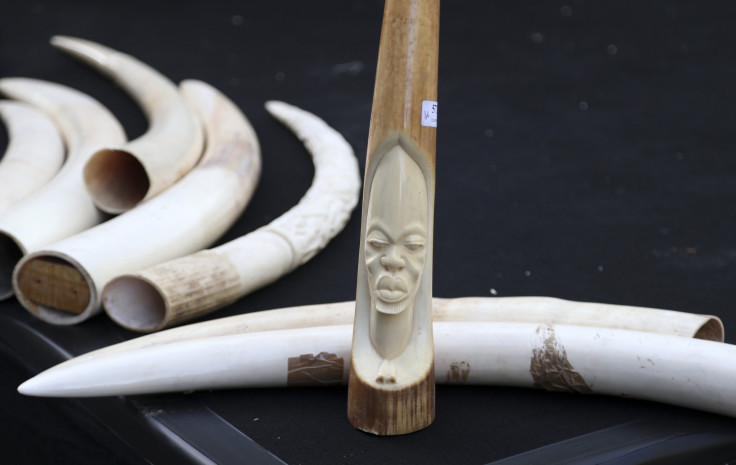Illegal Ivory Trade: US Authorities Target American Auction Houses

The fight to save Africa’s elephants is now being fought in American auction houses.
Poachers are killing a record number of elephants every year to obtain the ivory from their tusks, in high demand around the world for its use in everything from medicine to fine jewelry.
The United States is the second-largest market for ivory in the world after China. Though some ivory items can be traded legally, contraband products have made their way to American customers who have no way of knowing their origin. Watchdog groups and the U.S. government are now moving to ban trade entirely, to help fend off criminal groups who profit from trade, and save a dwindling elephant population.

“No one would mistake the sound of an auctioneer’s gavel for a poacher’s rifle shot, but the distance between the two is closer than most of us realize,” wrote Jeff Flocken, North America’s regional director of the International Fund for Animal Welfar in a report Tuesday outlining the industry's desperate need of regulation.
Their researchers attended auctions undercover and monitored online ivory sales from February to April, and found much of the millions of dollars worth of ivory sold had no documentation or proof it had not come from a recent kill. Plus, it seemed auction houses and dealers often left it up to buyers to determine the legality of ivory purchases.
“The scale of ivory trade in auctions, the confusing rules and regulations, and the suspect nature of a significant portion of ivory auction commerce, all contribute to making the auction industry a potential cover for illegal ivory trade,” the report says.

Poachers killed more than 20,000 African elephants last year, said the Convention on International Trade in Endangered Species, an environmental treaty with 180 member states that regulate trade in animal and wildlife products.
And it’s not just a few pieces that slip through the cracks.
In 2012, federal and state officials seized more than $2 million worth of illegal elephant ivory from New York City retail stores, the U.S. Fish and Wildlife Service said.

Previous rules allowed for trade in certain types of products that were acquired before the convention's rules took effect in 1989, and various types of antique items. However, it’s very difficult to spot the difference between new and old ivory, which makes it easy for buyers and sellers to traffic illegally without knowing it, compelling the agency to further crack down on all types of ivory trade.
“By implementing a near complete ban on trade in elephant ivory, we are effectively closing loopholes and eliminating the cover provided by legal commercial trade that traffickers have exploited for years,” said Dan Ashe, director of the U.S. Fish and Wildlife Service, in announcing stricter regulations on American ivory trade last May.
While many criminal watchdog groups and environmental advocates supported the decision, some did not. Auction houses and dealers argued the new ban was unfair and could seriously harm their business. Tom Martin, from the Rago Arts & Auction Center in New Jersey, told reporters while he and other dealers don’t support elephant poaching, complying with government regulations won’t be easy.
“Almost every house has some type of ivory in it,” he said, citing pianos from the 1960s with ivory keys, and noted he and others had turned away very valuable items for fear of violating the new regulations. He noted ivory was selling for roughly $1,500 per pound.

© Copyright IBTimes 2024. All rights reserved.






















